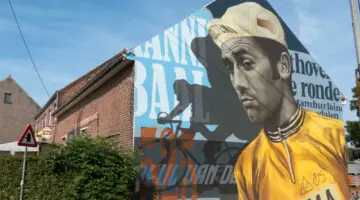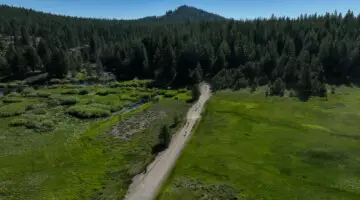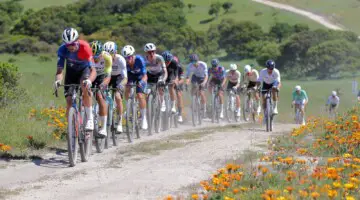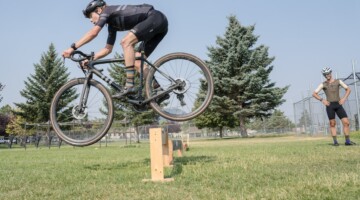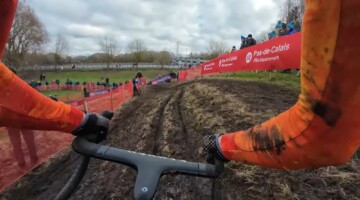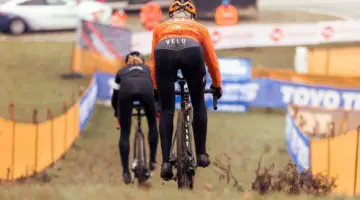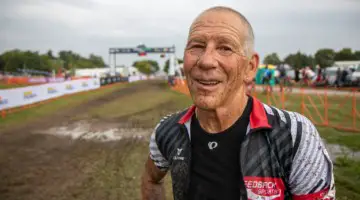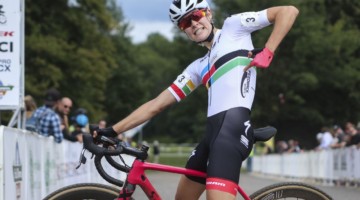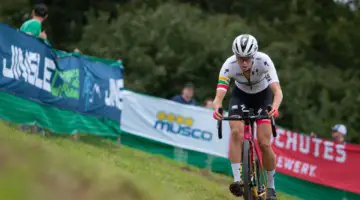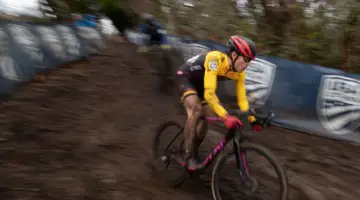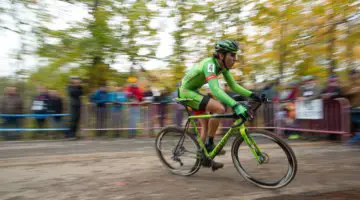Most of us gape in awe when we see Mathieu van der Poel unleashing his myriad bike handling skills or watch Ellen Noble defy gravity #bunnyhoppingthepatriarchy. Their skills undoubtedly stem from generational talent, but as both would tell you, they have also put in countless hours honing their craft.
Us mere mortals will likely never have the skills of an Ellen Noble or Mathieu van der Poel, but we can probably learn a thing or two about dedication and practice when it comes to improving our handling skills.
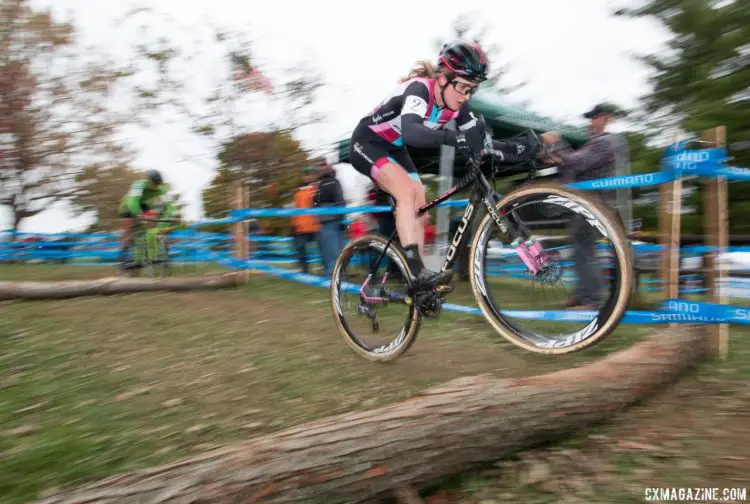
We can all learn from Ellen Noble, even if most of us will never have her talent. Elite Women, 2017 Cincinnati Cyclocross, Day 2, Harbin Park. © Cyclocross Magazine
One of the challenges I think amateur cyclocrossers face is it is easy to see cyclocross as a fall sport and train for it accordingly. When I started, I would eagerly wait for August ’cross practices while biding my time riding on the road and doing the occasional gravel ride. Needless to say, I was not very good at bike handling (my current skill level is dubious as well).
There is, however, no reason why we need to confine our cyclocross riding to the months of August through December. If the old saw "practice makes perfect" is to be believed, then working on bike handling skills before cyclocross practices start in August cannot hurt, right?
As trite as it might be, I am a total believer in the cliché "champions are made in the offseason." Growing up, I played basketball, and there was no way I was going to magically learn how to shoot by showing up in November and hoping the skill would click. I spent hour upon hour in the blazing summer sun working on my shot—of course, only to find I probably would have been better off on a bike. *sigh*
Need proof repetition works? We need look no further than famed social scientist Michael Jordan, who missed a lot of game-winning shots in his career, but used the misses as learning experiences for some of the most memorable shots in NBA history.
https://www.youtube.com/watch?v=45mMioJ5szc
If real social science is more your jam, the educational field has extensive research on the value of spaced repetition in learning—readers my age probably remember learning multiplication tables via Mad Minute exercises or using flashcards to memorize vocab words. Malcolm Gladwell’s book "Outliers" popularized the "10,000 hour rule" derived from Professor Anders Ericsson’s research on elites and their skill development.
Even if 10,000 hours are not required to say, learn how to ride an off-camber, available information suggests there is value in learning skills through repeated quality practice.
For this Technique Thursday (I think I just totally made that up), I compiled a list of some ideas for improving your bike handling skills this offseason.
- Get a mountain bike
- Ride singletrack on your ’cross bike
- Practice getting rad
- Play bike games
- Attend a clinic
- Find your own den bos
- Ride your bike
This list is by no means complete nor am I an expert, so my goal is to help spark some ideas. There are few who can hop like Ellen Noble, but a little work now cannot hurt come cyclocross season this fall.
Use the slider for more on each idea.

